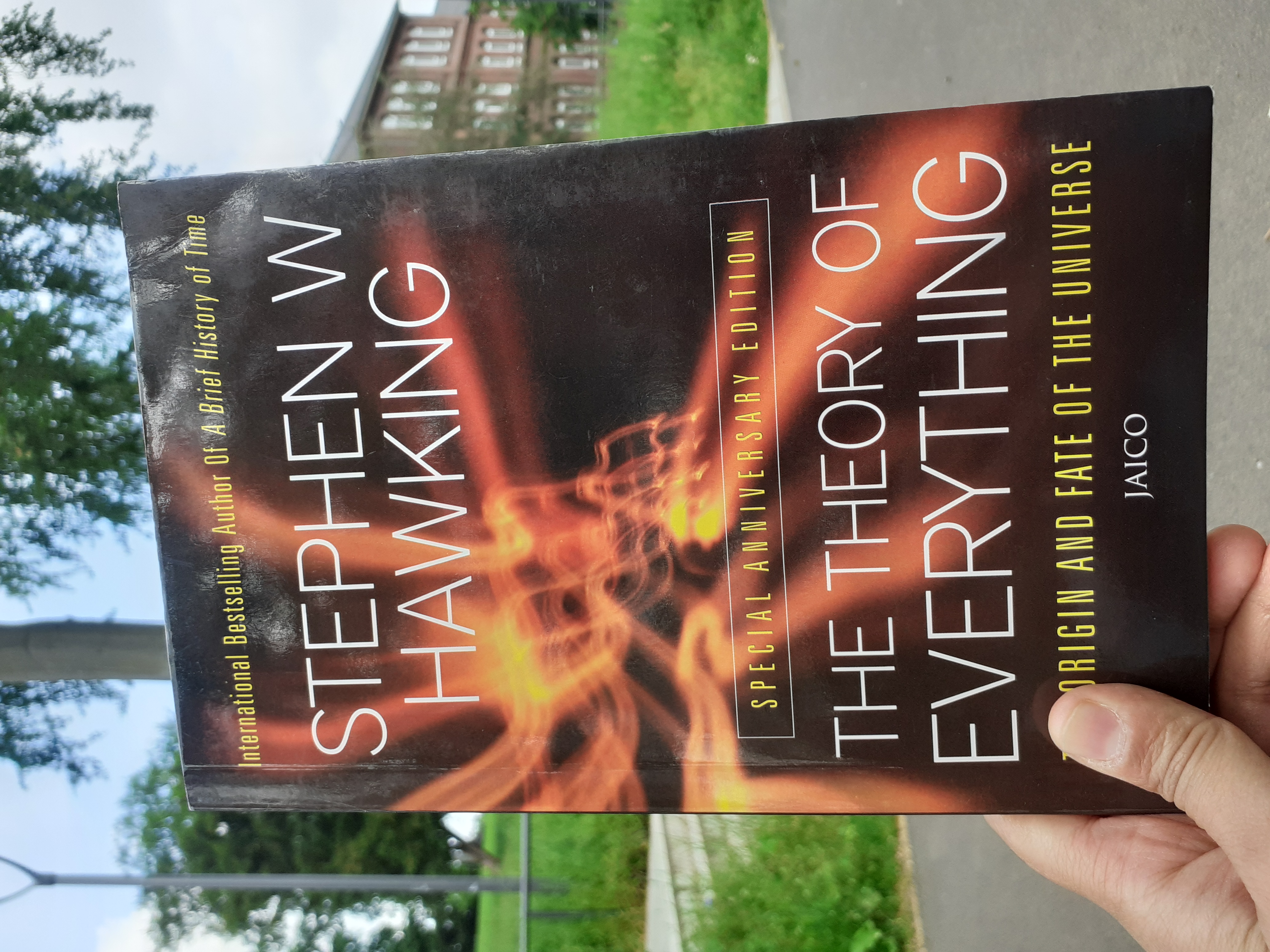
P.S.: This is not a review. In this piece of the write-up, I am only sharing why I chose to read this book, what changes the text has brought in my thoughts, what aspects of the subject I wish to study further, some disagreements, who should read this book, and why.
This is the third book written by Hawking that I have read after ‘A Brief History of Time’ and ‘Brief Answers to the Big Questions’ (I’ve posted the reviews of both books on my website/blog). I use this text mostly to brush up on the little understanding I have of astrophysics. I think it’s really important for anyone willing to understand the universe to have some idea of what's going on in the core research areas even if the Maths of it doesn’t make much sense to you. Reading and listening to the physicists and researchers themselves bridges the gap in comprehension when any such advancements are reported either by journalists or non-experts. And this holds in all the fields of your interest. The movie (in case you have watched) ‘The Theory of Everything’ is a personal account of the life and struggles of Hawking. However, the book is entirely about the science of the universe and has no stories of the personal account of the physicist. It was written close to a decade earlier than the movie. The title of the movie, I suppose is only an appropriate pick to represent Stephen’s life, and as per the foreword written in Hawking’s latest book ‘Brief Answers to the Big Questions’, by Eddie Redmayne, the actor who played the lead role in the movie, Stephen was looking forward to seeing more of science in the movie, than his tragedy.
Pick this book if —
—- you are fascinated by the night sky, the stars, planets, galaxies, our sun, the solar system, our universe, and everything that goes in and around it.
—- you want to sequentially understand the evolution in the scientific theories about the universe by Aristotle, Galileo, Newton, Einstein, Hawking, and the ongoing research.
— you want to know what is the present scientific belief about the universe, whether it will keep expanding, at what point will it contract, whether singularity is a myth and what is the role of God in the making of the universe.
— you are curious to know the role of time when it came into existence and when it will end.
— you have some interest in knowing more about black holes, neutron stars, white dwarfs, positrons, supernovas, life cycles of stars, and their corresponding categorization.
— you wish to understand the difference between Newton’s theory, Einstein’s theory of relativity, and quantum mechanics theories and their role in mapping our understanding of gravity, the big bang, time, and space.
— you want to know the possibility of a unified theory that explains everything happening in the universe.
This book consists of seven lectures by Stephen Hawking covering all of this. A simple answer to why I chose to read this book is that I find all of this enthralling. I have started to believe that science is quite philosophical. And any student of science must study correlated philosophy simultaneously for a deeper connection with the subject, and to ask the right questions.
For me these days it's all about the philosophy of entropy, for example. The second law of thermodynamics says that with time chaos will inevitably increase. Let’s say you cleaned your house today, now with time, it is going to get dirty, things will be messed around, and as much as you try and put things in order, it’s going to slip into disorder. That’s how it is. So everything is imperfectly perfect, completely in disorder yet in order. And I cannot resist thinking about it.
Moreover, I am deeply moved by the grit and determination that Hawking has put in all his work, as for him the time was coming to an end anytime soon. As per his doctors, he only had two years to satiate his curiosity about the universe, and he went in with full force, only to find himself operating at the same consistency for forty years.
Unfortunately, there is a huge gap in the actual technological know-how and progress in validating the mathematical theories by all of these physicists, and I think that’s one of the biggest challenges to human growth today. You know it is just on paper.
I am sure there are many ‘secret’ kinds of research being carried out by private and public organizations, but it's all a game for the power of knowledge. And we know only what we are told we must know. Well, that’s a different subject of discussion.
I have realized that it takes decades for the advancements in science to find a place in our regular study books, so if you are relying on the knowledge of the universe you gathered from your textbooks, it is time you upgrade yourself with some real stuff. Although this book was also written approximately two decades back, books like this will help in building a stable foundation and bringing clarity to further cognizance. You may participate in many open-source online astrophysics and science forums, read research papers, ask questions, and listen to good science podcasts to stay updated.
I broadly have apprehensions about agreeing to a universe without God. I’ve lived the dry life of an atheist for some time, and chose to route back for some reason. And to find answers here, they say it's essential to partner up science with spirituality. We will take that up next time! Until then read the book, and suggest some more books that you have read in the genre in the comments section for everyone to know. 🙂
Written by: Nazneen Siraj Kachwala
Leave a comment